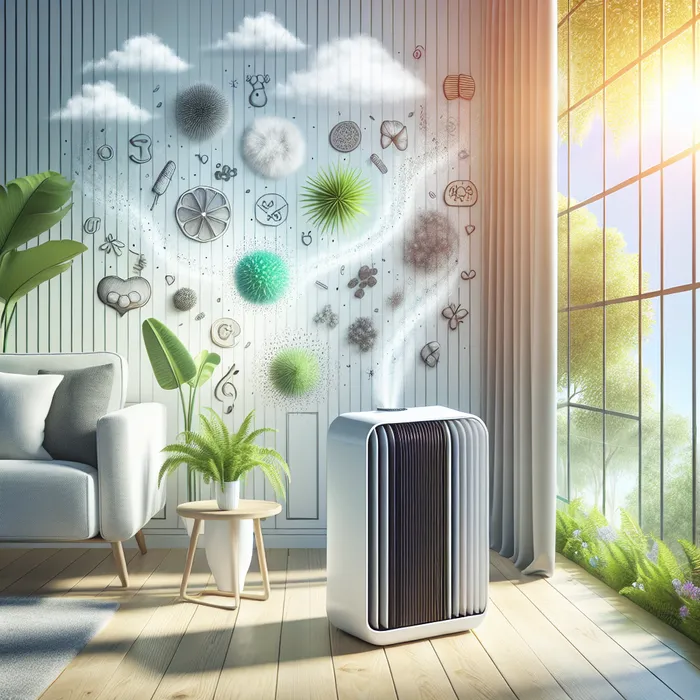Do air purifiers work wonders for allergies? Let’s clear the air

Breathing easier might need a multifaceted approach, but the effort could bring lasting relief from those pesky allergens.
Image: Eva Bronzini
Allergies can feel like an unwelcome guest that refuses to leave. The sneezing, itchy eyes and constant runny nose can make everyday life a challenge.
For some, allergies are mild annoyances, but for others, they can trigger more serious conditions like asthma.
Whether your triggers are pollen, pet dander, or dust mites, the quest for relief often leads to one question: Can air purifiers actually help?
Let’s dive into the facts, the science, and what you can do today to breathe a little easier.
The idea behind air purifiers is simple: they filter particles from the air to reduce allergens, making your indoor environment cleaner. But how effective are they really?
Here's what research says:
1. HEPA filters can make a difference: A 2020 study on adults with allergic rhinitis showed that air purifiers equipped with high-efficiency particulate air (HEPA) filters significantly reduced allergy-triggering substances in homes.
Participants also reported needing less medication after using air purifiers in their bedrooms and living rooms for six weeks.
2. Mixed results for long-term benefits: A 2024 review of multiple studies found that while air purifiers helped reduce allergy symptoms, the effects on quality of life and medication use were limited. The study’s authors emphasised the need for more comprehensive research.
3. For asthma sufferers: A 2020 meta-analysis of 10 studies showed that air purifiers improved quality of life and reduced airway inflammation for people with allergic asthma. However, the devices didn’t consistently change daily symptoms, lung function, or medication needs.
Air purifiers can complement your allergy management plan, but they aren’t a cure-all. Think of them as part of a broader strategy that includes medical treatments and lifestyle changes.
Air purifiers, particularly those with HEPA filters, capture airborne particles like pollen, pet dander, and smoke. According to the United States Environmental Protection Agency (EPA), HEPA filters trap 99.97% of particles as small as 0.3 microns.
To put that into perspective, if there were 10,000 particles of that size, only three would escape the filter.
However, it’s important to note their limitations. Air purifiers only clean the air, not surfaces. Allergens that settle on floors, furniture, and walls remain untouched unless you clean them.

Air purifiers can complement your allergy management plan, but they aren’t a cure-all. Think of them as part of a broader strategy that includes medical treatments and lifestyle changes.
Image: Ron
Are air purifiers enough?
While air purifiers can reduce allergens in the air, they work best when combined with other preventative measures.
Here’s how you can create a more allergy-friendly home:
- Practical tips for allergy management.
- Vacuum regularly: Vacuuming removes allergens from carpets and furniture. Pro tip: vacuum when no one is home, as it can stir up dust temporarily.
- Control humidity: Keep your home’s humidity levels under 50% to prevent mould growth and dust mites. Use a dehumidifier if needed.
- Shoes off, clothes changed: Leave outdoor allergens at the door by taking off your shoes and changing clothes when you come inside.
- Shower at night: Rinse off pollen and allergens before bed to keep your bedding allergen-free.
- Pet grooming: Brush and bathe your pets outside, and wash their bedding frequently to reduce dander.
- Keep windows closed: Especially during peak pollen seasons, rely on air conditioning to keep your home cool without inviting allergens inside.
- No smoking indoors: Cigarette smoke is a major irritant and can make allergies worse.
If you’re unsure about your specific triggers, consider allergy testing. A healthcare provider can identify what’s affecting you and recommend targeted treatments like immunotherapy or antihistamines.
Related Topics: